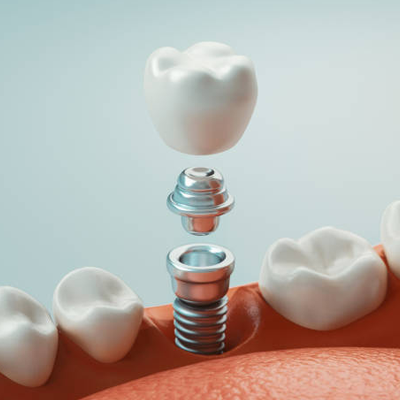
What Do You Need to Learn Before Your Root Canal Treatment?
Root canals may seem intimidating, but they are a standard dental procedure that can save your smile and relieve pain. However, before you undergo the treatment, you must know what it involves, how to prepare for it, and what to expect during and after the procedure.
What is a Root Canal?
Root canal treatment is done to remove the roots of a tooth. The root canal procedure involves cleaning the area around the tooth and removing any infected or unhealthy tissue. The tooth may then be filled with a material that will help it heal.
Types of Root Canals
There are many different types of root canals, so choosing the right one for your treatment is essential.
Endodontic therapy often treats dental problems, including tooth decay, gum disease, and other oral problems. The dentist will evaluate the situation and decide on the best treatment plan. The dentist will likely recommend an endodontic procedure if you need a root canal. There are three main types of root canals: standard endodontic therapy, extended endodontic treatment (EEP), and periapical surgery (PAS).
Standard endodontic therapy involves removing the affected tooth using tiny surgical tools and a drill. Extended endodontic therapy (EEP) is a more extensive procedure that includes additional steps such as widening the opening of the tooth with a particular instrument called a rougher or file, then drilling down through the enlarged area. Periapical surgery (PAS) is a minimally-invasive option that uses local anesthetics and tiny surgical instruments to remove teeth without damaging surrounding tissues.
Symptoms of a Root Canal
Root canals are a standard dental procedure used to clean out the inside of a tooth. The root canal is done by a dentist using a hollow needle and special fluid. This procedure can be hazardous if not done correctly, so knowing what to expect before your treatment is essential.
The symptoms of a root canal may include:
1. A tooth that feels numb or tingly
2. Swelling in the area around the tooth
3. Pain that increases when you move your jaw or eat
4. Foul-smelling discharge from the tooth
How to Prepare for Your Treatment
If you are considering having a root canal, you should know a few things before your treatment. First, make an appointment with your dentist. They can offer you further information and answer any questions about the procedure. Second, be sure to carry all of the following items with you to your appointment:
1. A copy of your dental insurance policy
2. Your medical history
3. A list of all medications and supplements that you are taking
4. A list of any allergies you may have
5. Any x-rays or pictures from previous dental work
Third, be prepared for some pain. Most patients report minimal pain during or after their root canal treatment. However, if you experience excessive pain or discomfort, fail to contact your dentist immediately. Fourth, remember that dentists generally do not use anesthesia during root canals. If this concerns you, speak to your doctor before scheduling your appointment, and taking care of your teeth after the process is essential by visiting the dentist every six months for a cleaning and checkup.
After the Treatment
If you are considering having a root canal, here is what you need to know before your treatment.
The tooth is removed, and the pulp (the soft tissue inside the tooth) is cleaned of any build-up. This area is then filled with anesthetic, and a small drill is used to make a hole in the center of the pulp. Next, the tooth’s surrounding bone is removed to see the dentin (the more complex layer beneath the pulp). This dentin may also have some nerves and blood vessels attached, so care must be taken not to injure these structures.
Once this area has been adequately exposed, a curette is used to scrape off any infected or decayed dentin from around the hole made in the pulp. The dentist then uses a needle and syringe to remove any infected material from the cavity and flush it with water. Any residual pain or inflammation from the treatment will be treated with medication as necessary.
FAQs about Root Canal
Root canal treatment is a dental process that concerns the removal of infected or damaged pulp from the tooth, cleaning and disinfecting it, then filling and sealing it. It’s a standard procedure, but many people need clarification on what to expect. Here are some frequently asked questions:
1. Does a root canal hurt?
Many people worry that this treatment will be painful. However, local anesthesia is used to numb the area surrounding your tooth so that you won’t feel any pain during the procedure.
2. How long does a root canal take?
The length of time for a root canal relies on several factors, such as how complex your case is or if there are multiple canals in your tooth.
3. Is a root canal safe?
Root canals have been performed safely for over 100 years, with modern technology making them more effective.
4. What happens after a root canal?
After a successful treatment, you may experience some soreness, but this should subside within several days, after which you’ll need follow-up instructions from your dentist.
5. Can I prevent needing a future root canal?
Prevention through good oral hygiene practices, including brushing twice daily, flossing at least once per day, and regular visits to your dentist every six months, can help prevent future complications leading up to needing another round of root canal treatments.









